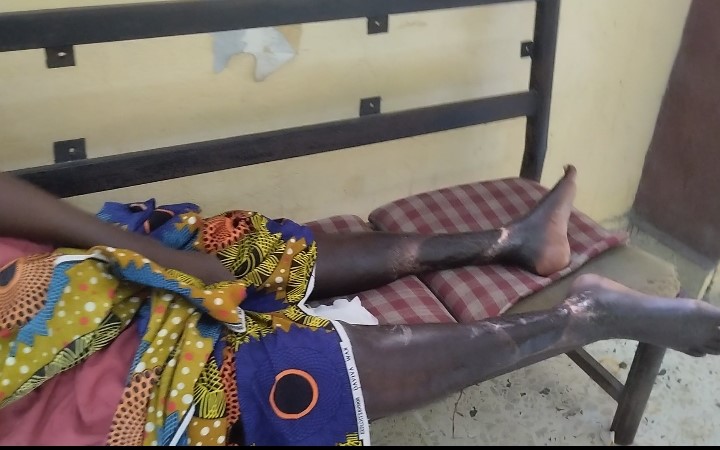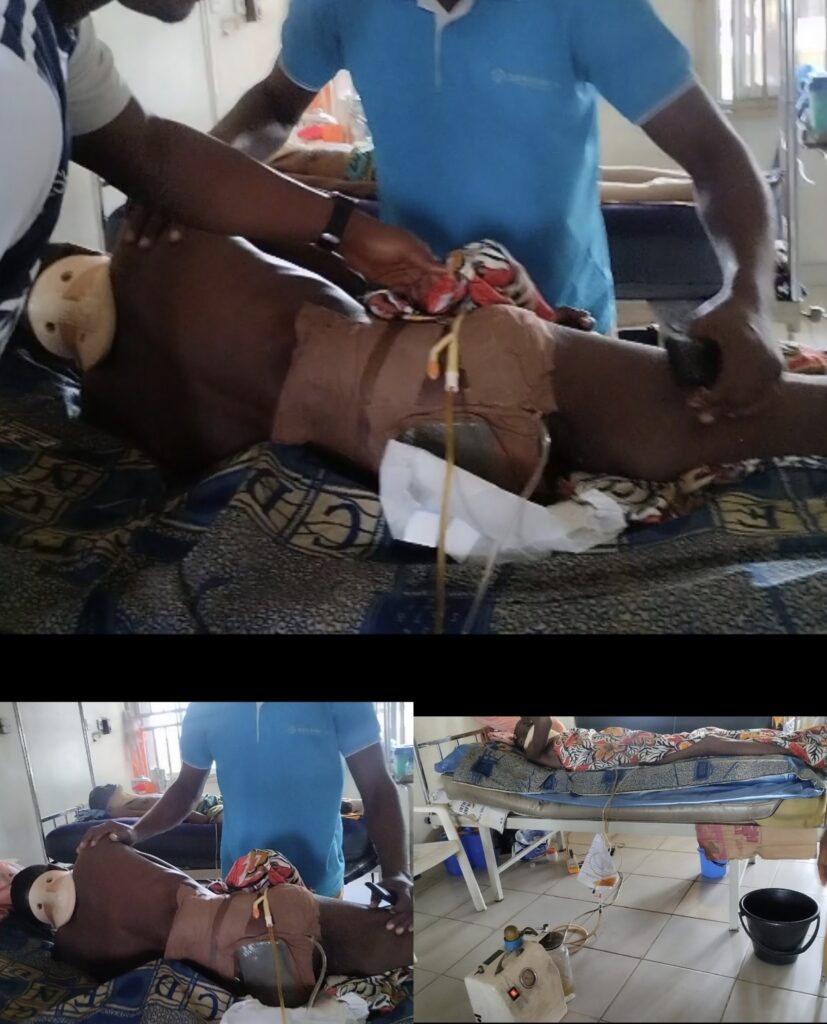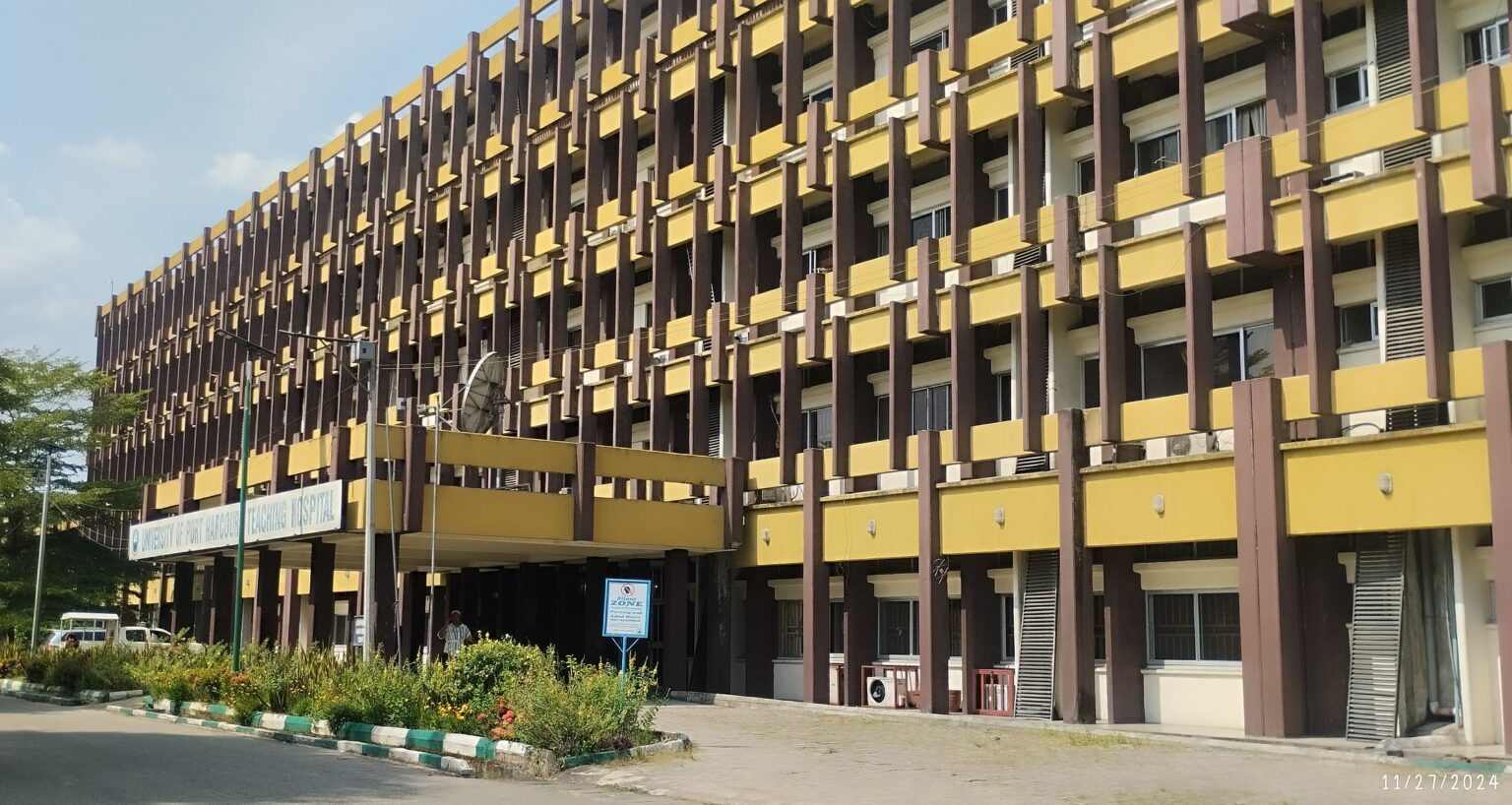The University of Port Harcourt Teaching Hospital (UPTH), a federal health facility, recently became the focus of a viral social media post shared by a patient’s relative. The post revealed alarming concerns about the quality of healthcare and the conditions within the hospital.
The complaint outlined several issues, including compulsory feeding, medical negligence, lack of essential facilities, and the financial struggles of patients.
To investigate these claims, on November 27, 2024, a reporter from The New Daily Prime visited the hospital, interviewing patients and staff regarding the allegations.
Claims of Poor Healthcare Delivery
A user on X (formerly Twitter), Baridueh Badon (@BadonB), who worked as a house officer at UPTH 12 years ago, shared his distressing experience involving his mother, who was hospitalized at UPTH for over six months.
In his post on November 17, Badon described the hospital as a place where basic healthcare services, such as food, were imposed on patients for a mandatory daily fee of ₦2,000. He claimed that patients could not opt out of this provision and that the food served was substandard, likened to meals worse than those in prisons.
Legally, hospitals cannot force patients to eat hospital food, as individuals have the right to make decisions about their care, except in cases of incapacity, court-ordered care, or specific institutional rules. None of these exceptions applied to Badon’s mother, raising questions about the hospital’s practices.
Badon also highlighted that UPTH’s medical staff were overstretched, often requiring patients’ relatives to administer intravenous fluids and medications. Despite spending over ₦6 million and leveraging connections within the medical community, his family’s ordeal remained harrowing.
“If I faced all these challenges with my doctor friends and connections, imagine the plight of the common man,” Badon lamented.
The situation worsened with repeated delays in his mother’s surgery, which was canceled four times due to staff shortages, unpreparedness (e.g., pending medical clearances), power outages, and medical staff attending conferences.
When contacted by the reporter for further details, Badon responded curtly: “I have shared my story. If you go to the hospital, you will see things for yourself. Good luck.”
A Legacy of Financial Constraints and Unmet Needs
The hospital has faced criticism for a now-discontinued policy of compulsory feeding, where patients were required to pay significant amounts for daily meals and treatments. Similarly, in 2021, the ICIR reported that at the Enugu State University of Science and Technology Teaching Hospital (ESUTH), patients were charged ₦1,500 daily for meals they did not eat.
In one heartbreaking testimony, a 36-year-old accident victim from Obio/Akpor Local Government Area shared how financial struggles turned his life into a battle for survival over more than three years.
A sickle cell patient, he described neglect at home, where his pleas for treatment were ignored by his family. By the time he arrived at UPTH, his condition had worsened due to a prolonged infection.
The source revealed that he had to sell family property to fund his treatment but was eventually forced out of the hospital due to mounting expenses. “I rented my former house for ₦300,000 yearly,” he said. “But my brother bought it just to raise funds. Now I am left with little property inherited from my late father.”
“I bleed for hours unattended,” he added. “I was rushed to the emergency ward and received some care.”
Since being evicted from his bed space in the male ward, he now sleeps in an open passage on a wooden bench without a mosquito net, surviving with mosquito repellent. “Mosquitoes finish me here; I usually buy mosquito coils to ease the bites at night,” he said.
In contrast, Chima Innocent, another patient’s relative, confirmed to The New Daily Prime that the compulsory payment for feeding was stopped last year.
An ex-patient, Uche Worlu, who was transferred to UPTH in December 2023 due to a health complication, recounted his experience. While initially required to pay for feeding during his stay, he observed that the policy ended by February 2024.
Worlu stated: “After going through antibiotics treatment, I did not undergo surgery because the site of my previous surgery got complicated and reopened. I was brought in as an emergency case, which extended my stay.”
“I stayed here until February. By the third week of February, they stopped providing food. The payment was compulsory, and they counted each day you stayed in the hospital. By March, I noticed they had completely stopped serving food.”

Bedsores and Broken Hopes
Embale, a caregiver for his bedridden son Wisdom, who sustained a spinal cord injury at his workplace in Bayelsa State, shared his frustrations. He described how their funds were exhausted after being charged for bed sore treatments and a proposed ₦1.5 million surgery.
“We can no longer meet the expenses,” Embale admitted, preparing to take his son home without surgery. However, he noted that since their arrival at UPTH on October 16, they had not been asked to pay for feeding. “Since we came here, we’ve been buying our food,” he said.

Hospital’s Response
UPTH’s Chief Protocol Officer, Chimele Winfred, dismissed the allegations, attributing patient complaints to “ingratitude.” He confirmed that the hospital had stopped serving meals due to internal policy changes unrelated to hardship or patient complaints.
“We have stopped providing food,” he stated, emphasizing the hospital’s efforts to deliver care within its constraints. He urged patients to report grievances through the hospital’s customer service unit, ServiCom.
“We are here for the patients and the public,” Winfred added. “If patients have issues, they should report them immediately.”
While confirming the cessation of food services, Winfred denied any link between the decision and the complaints raised by patients. “The management is deliberating on the next steps, but the decision to halt food service was purely a policy decision, not influenced by external claims,” he concluded.



